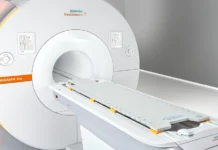Unlike other forms of debt, medical debts are usually unplanned. In the United States, two-thirds of such obligations result from one-time or short-term debts due to expenses incurred to cover acute healthcare needs.
If your spouse or parent just died, and they have unpaid medical expenses, how do you deal with their hospital bills after their death? To whom does the responsibility of paying the medical bills get passed?
Paying the medical bills of individuals who have died can be challenging for some people, especially if the deceased loved one was their spouse or parent. The money owed may not necessarily disappear upon death, so learning how to manage medical bills can help those left behind pay off those debts without too much worry.
If you’re among those people with this burden, you can seek help from institutions providing solutions to pay medical bills. Solutions can include financing or repayment plans to help you consolidate your debt.
Read on to learn how to deal with medical debts after losing your loved one.
How to Manage Medical Bills After the Loss of a Loved One
Financial stability is often associated with one’s capacity to pay medical expenses. But when such costs for one family member become too big, they can adversely affect the rest of the family.
In the U.S., more Americans find unexpected healthcare costs unaffordable, and many end up delaying required care. This issue is a growing problem in the country with limited public health insurance coverage like Medicare and Medicaid.
So, how do you manage the medical bills of a loved one, like a parent or spouse, after their death?
First, determine if medical debt gets passed to you. Laws regarding this debt can vary between states. For example, most states do not require surviving partners to become liable for their spouses’ personal debts.
After your loved one passes away, their estate is born, meaning the estate pays its debts and distributes any balance to the heirs.
An estate executor takes care of this matter. All debt-related correspondence gets directed to the executor.
Sometimes, creditors can write off small medical debts upon death. This situation depends on how you or the executor negotiates with those owed.
You can consider negotiating the medical charges for larger bills, especially if the estate has insufficient assets to pay off those bills. The medical provider can offer to settle the debt all at once or through a payment plan. The settlement offer is usually lower than the owed amount.
If a person dies without an estate, creditors can consider the debt unrecoverable and forgiven. If you’re uncertain about your state’s laws, ask your lawyer for more information.
Who Becomes Responsible for Medical Expenses After a Spouse’s or Parent’s Death?
Your deceased loved one’s estate usually pays for their medical debt. In other words, you’re generally not responsible for your deceased loved one’s debt unless you’re the estate executor.
The executor, usually appointed by a court or named by the testator (the person giving the will) before death, can be anyone as long as they are over 18 and have no felony convictions. Eligible individuals who can become executors include:
- Family members
- Lawyers
- Accountants
Suppose you’re a surviving family member of the deceased. You can become responsible for their medical bills if you’re:
- An estate administrator or representative
- A surviving spouse living in a state known as a community property state where you jointly own marital assets under the law
- A cosigner who guarantees a debt with the deceased individual
- A spouse or parent living in a state with laws considering you responsible for specific costs like healthcare
Laws regarding healthcare and debt can vary among states. Consider contacting a financial advisor or lawyer well-versed in your state’s laws to ensure your loved one’s medical bills are settled after they pass.
References
- Medical debt in the U.S. – Statistics & Facts
https://www.statista.com/topics/8219/medical-debt-in-the-us/
- Problems Paying Medical Bills: United States, 2021
https://www.cdc.gov/nchs/data/nhsr/nhsr180.pdf
- What Is an Executor? Definition and Responsibilities
https://www.investopedia.com/terms/e/executor.asp#toc-being-an-executor

















